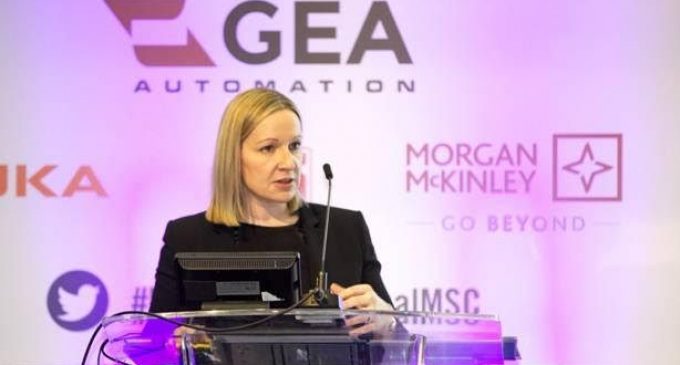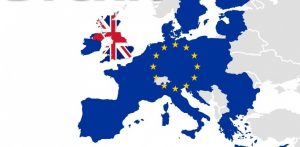Irish Businesses Should Prepare For a ‘Hard’ Brexit

“Businesses across Ireland must prepare themselves for a ‘hard’ Brexit. You must establish your exposure now,” cautioned Lucinda Creighton (pictured), when addressing the recent National Manufacturing and Supply Chain Conference & Exhibition, held at the Citywest Convention Centre in Dublin.
Lucinda Creighton is the founder of Vulcan Consulting and a former Member of Parliament and Minister for European Affairs in the Irish Government, with extensive knowledge of the regulatory and bureaucratic systems across Europe. Vulcan Consulting provides in-depth analysis of the changing regulatory environment in Ireland and at the EU level, flagging major changes and providing expert strategic advice to companies on how to anticipate and influence change.
Her presentation to the 2018 National Manufacturing and Supply Chain Conference & Exhibition was titled: ‘Brexit Challenges for the Irish Manufacturing & Logistics Sector’.
 Having now entered the ‘second phase’ of Brexit negotiations, which concern the future trading arrangements between the UK and the European Union, the uncertainty of 2017 is likely to continue into 2018 as the direction of the UK Government is still unclear. “There is huge division within Theresa May’s Cabinet,” she pointed out. “The Labour Party is growing in strength but is also committed to leaving the Single Market and Customs Union.”
Having now entered the ‘second phase’ of Brexit negotiations, which concern the future trading arrangements between the UK and the European Union, the uncertainty of 2017 is likely to continue into 2018 as the direction of the UK Government is still unclear. “There is huge division within Theresa May’s Cabinet,” she pointed out. “The Labour Party is growing in strength but is also committed to leaving the Single Market and Customs Union.”
“There remain stumbling blocks from the ‘first phase’ such as the Irish border as the UK will need to propose specific solutions to this issue,” she added.
Given the time constraints to negotiate a free trade deal, which normally takes between 7 and 10 years, there appear to be two existing models, already in operation between EU and Norway, and the EU and Canada, to base Brexit on.
In the first case, Norway is a member of EFTA and part of the EU Single Market but outside the Customs Union. This involves no regulatory divergence and a fairly frictionless border with the EU as that operated between Norway and Sweden. The Canada trade scenario removes the majority of tariffs but entails checks and customs controls at the border.
The final Brexit deal will not be a replica of either of these two models but is likely to be closely ressemble one or the other, she pointed out. The Irish Government favours the Norway model while the British Government seems more inclined towards the Canadian-type of deal.
The uncertainty over Brexit is already starting to impact the UK with a weakening of Sterling, inflation at a four year high and the start of a squeeze on incomes. “Ireland has yet to feel the true extent of Brexit,” Lucinda Creighton said.
However, she warned that Irish businesses must plan for any eventuality including the worst case scenario, which is a failure to reach a trade deal – a ‘hard’ Brexit. A ‘hard’ Brexit would mean EU/UK trade being determined by WTO tariffs, regulatory divergence, delays at ports and customs controls, along with major implications for the labour market. She urged Irish companies to immediately consider the impact on their supply chains and to take any necessary steps to diversify in order to reduce risk exposure.



























